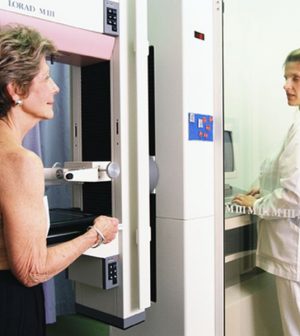- Could Your Grocery Store Meat Be Causing Recurring UTIs?
- Are You Making This Expensive Thermostat Error This Winter?
- Recognizing the Signs of Hypothyroidism
- 10 Strategies to Overcome Insomnia
- Could Artificial Sweeteners Be Aging the Brain Faster?
- Techniques for Soothing Your Nervous System
- Does the Water in Your House Smell Funny? Here’s Why
- Can a Daily Dose of Apple Cider Vinegar Actually Aid Weight Loss?
- 6 Health Beverages That Can Actually Spike Your Blood Sugar
- Treatment Options for Social Anxiety Disorder
Making Sense of Mammography Guidelines

Experts agree that detecting breast cancer early offers a better outlook, but when to start screenings and how often to have them has changed repeatedly.
The goal has been to balance early detection with the distress of false positives that lead to unnecessary testing. But leading medical organizations differ regarding the guidelines, making it incumbent on women (and men at risk for breast cancer) to know all the options and take steps to make the right choice for them.
For instance, for women with an average risk of developing breast cancer, the American College of Obstetricians and Gynecologists (ACOG) recommends a yearly mammogram starting at age 40, while the American Cancer Society (ACS) recommends starting at age 45. Unlike those two groups, the U.S. Preventive Services Task Force recommends a mammogram every two years.
There are also differences in when to stop mammograms. ACS suggests continuing as long as the patient is in good health and has a life expectancy of 10 or more years. ACOG recommends patients and doctors make this decision together.
Most groups agree that each patient should get an individualized screening schedule after discussing her personal and family health histories with her doctor. Women with a parent, sibling or child with breast cancer are candidates to start earlier screenings and to possibly also have an annual breast MRI. It’s also important to know whether you have dense breasts and, if so, what type of mammography, such as newer 3D imaging, is best for you.
More information
The U.S. National Cancer Institute has a primer on breast cancer screening.
Source: HealthDay
Copyright © 2026 HealthDay. All rights reserved.










